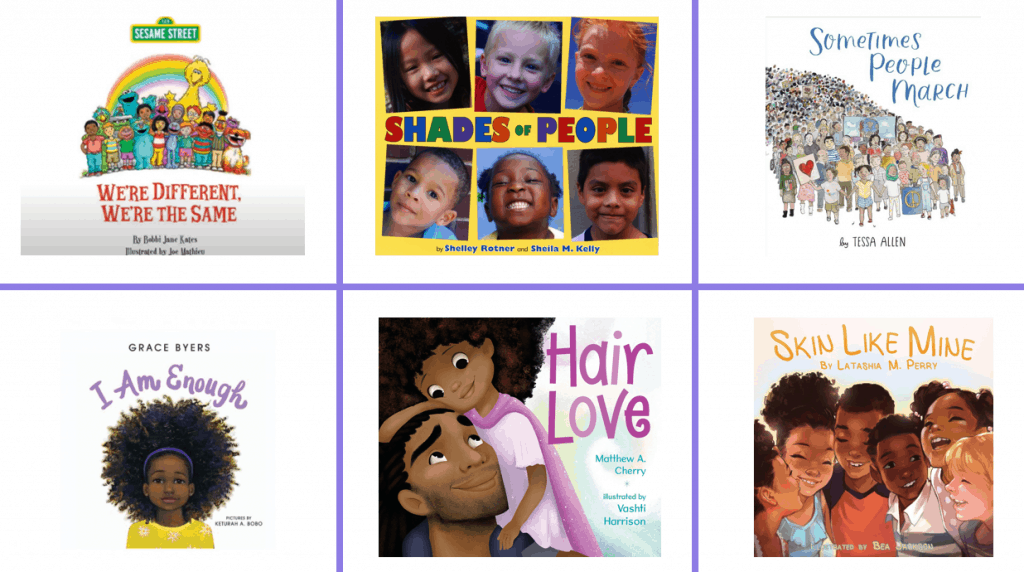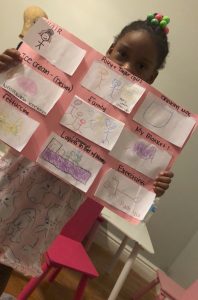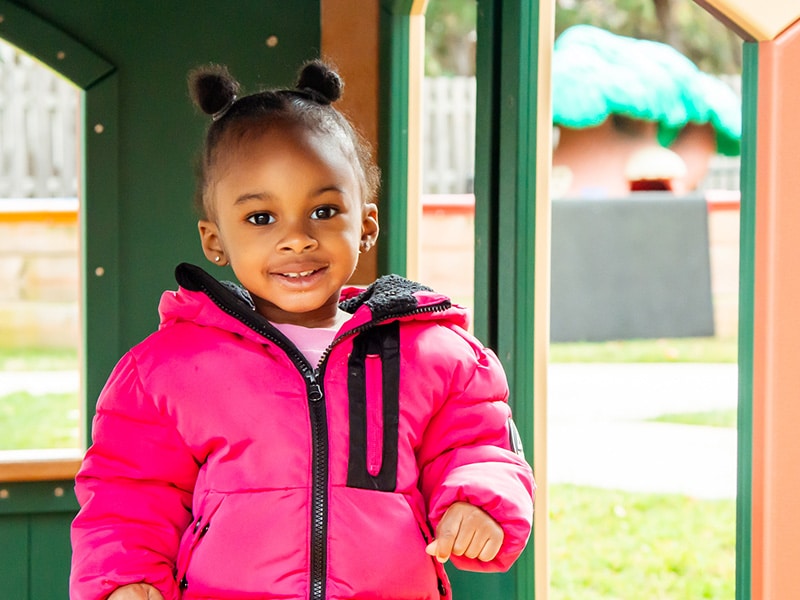In these tumultuous times, the need for greater diversity, equity and inclusion (DEI) is in the news almost every day. One of the best ways to raise tolerant, accepting and empathetic children ready to thrive in life is to start early, incorporating inclusion and anti-bias into early childhood education curriculum for infants, toddlers and their families.

Diversity, Equity & Inclusion in the Early Childhood Classroom
School Director, Danielle Jordan, shares diversity, equity and inclusion best practices that Educare Chicago uses to help their students celebrate and develop confidence in their personal and social identities.
Stay Connected
Sign up to receive news, helpful tools and learn about how you can help our youngest learners.
Danielle Jordan, a school director of Educare Chicago, recently shared the early childhood school’s DEI best practices, starting with the fundamentals.
Teachers at Educare Chicago incorporate songs, storytelling and books into the curriculum. Some of her favorites include:

This approach to developing a child’s sense of confidence in their personal and social identities (e.g., gender, ethnic and religious) aligns with the National Association for the Education of Young Children’s (NAEYC) anti-bias education. As a result, children feel grounded in who they are without a need to be superior to anyone else. The approach also emphasizes a teacher’s capacity to help a child recognize how they are simultaneously different and similar to others, which helps children foster an ability to comfortably and empathetically engage with people from all backgrounds.
We encourage students to share what is distinct about their families, how they celebrate special occasions and what is important to them.
Danielle Jordan, School Director, Educare Chicago
 In a recent activity, children recently made posters showcasing their cultural heritage, as well as their similarities and differences. “The students were able to share and be proud of what makes them unique… your hair may be in ponytails, while my hair is in locks. The simple rule is we would like to treat people fairly and acknowledge that we are different but we’re also the same and need to show each other respect,” Jordan continues.
In a recent activity, children recently made posters showcasing their cultural heritage, as well as their similarities and differences. “The students were able to share and be proud of what makes them unique… your hair may be in ponytails, while my hair is in locks. The simple rule is we would like to treat people fairly and acknowledge that we are different but we’re also the same and need to show each other respect,” Jordan continues.
This focus on respect and appreciation for inclusion is particularly important during this time of racial unrest. “The way that we address the societal environment is by talking about community, family, culture and heritage,” says Jordan.
To help talk about these topics, staff at Educare Chicago have incorporated Sesame Street’s “We’re Different, We’re the Same” segment into their curriculum, as well as the book “Sometimes People March” by Tessa Allen.
We are doing exactly what our name says… We are starting early and building foundations that I hope will give the students what they need to go on.
Danielle Jordan, School Director, Educare Chicago
Educare Chicago teachers also help students learn how to process big emotions such as sadness and anger, while emphasizing that people express feelings in a variety of ways to encourage an appreciation for personality differences. The school’s Wellness Specialists also connect with parents to let them know where their children are from a socioemotional perspective and offer guidance for development.
Intensive family engagement is a core tenet of the school’s approach, meaning the school’s inclusive curriculum also extends to children’s first teachers: their parents and caregivers. Staff provide parents with book recommendations, including those outlined above to help encourage at-home discussions about DEI. There are also parent support groups and a Parent Committee to help parents to build strong relationships with staff and one another.
Jordan has already seen the impact of their work. Recently, students celebrated a very shy classmate for stepping outside his comfort zone to give a presentation to the entire school about his pet snake.
Learn more about how to address race and identity with children by reading our National Racial Day of Healing blog post.
What We Do
Our comprehensive approach applies our deep expertise in program, policy and research so that children, families and educators can thrive.
Support Our Work
Together, when we start early, we can close the opportunity gap and ensure every child has a chance to reach their full potential.
Our Impact
Learn more about how we are supporting children, families and early childhood professionals as we improve the state of early learning in America.

